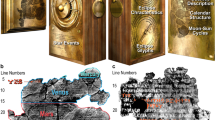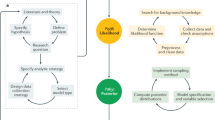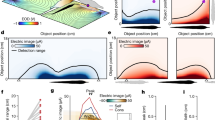Abstract
Two Soviet nuclear explosions appear to have been made in Central Asia on October 22 and 28, 1962. According to different reports the devices were exploded at ‘greater heights than usual’, but no precise data regarding heights, bomb sizes and times of explosions are available. From magnetic recordings (Dr. Båth, Uppsala, and Dr. Selzer, Paris, private communications) it can be inferred with reasonable accuracy, however, that the explosions occurred at 03.40.45 U.T. and 04.41.20 U.T., respectively. Both explosions yielded very pronounced disturbances of radio wave propagation in Scandinavia and western Europe.
This is a preview of subscription content, access via your institution
Access options
Subscribe to this journal
Receive 51 print issues and online access
$199.00 per year
only $3.90 per issue
Buy this article
- Purchase on Springer Link
- Instant access to full article PDF
Prices may be subject to local taxes which are calculated during checkout
Similar content being viewed by others
References
Wait, J. R., Electromagnetic Waves in Stratified Media (Pergamon Press, 1962).
Crain, C. M., and Tamarkin, P., J. Geophys. Res., 66, 35 (1961).
Author information
Authors and Affiliations
Rights and permissions
About this article
Cite this article
RIEDLER, W., EGELAND, A., LINDQUIST, R. et al. Effects of Nuclear Explosions on Very-low-frequency and Low-frequency Propagation. Nature 198, 1076–1077 (1963). https://doi.org/10.1038/1981076a0
Issue Date:
DOI: https://doi.org/10.1038/1981076a0
Comments
By submitting a comment you agree to abide by our Terms and Community Guidelines. If you find something abusive or that does not comply with our terms or guidelines please flag it as inappropriate.



